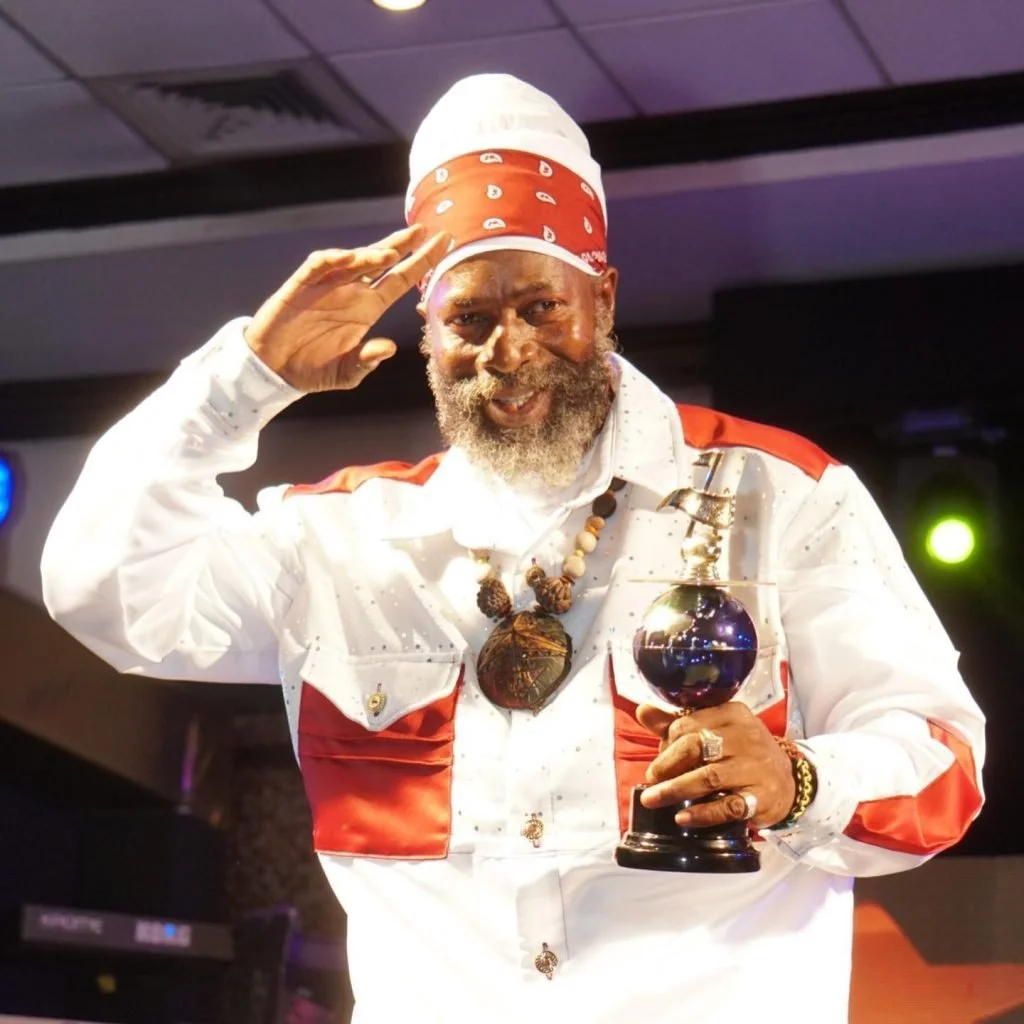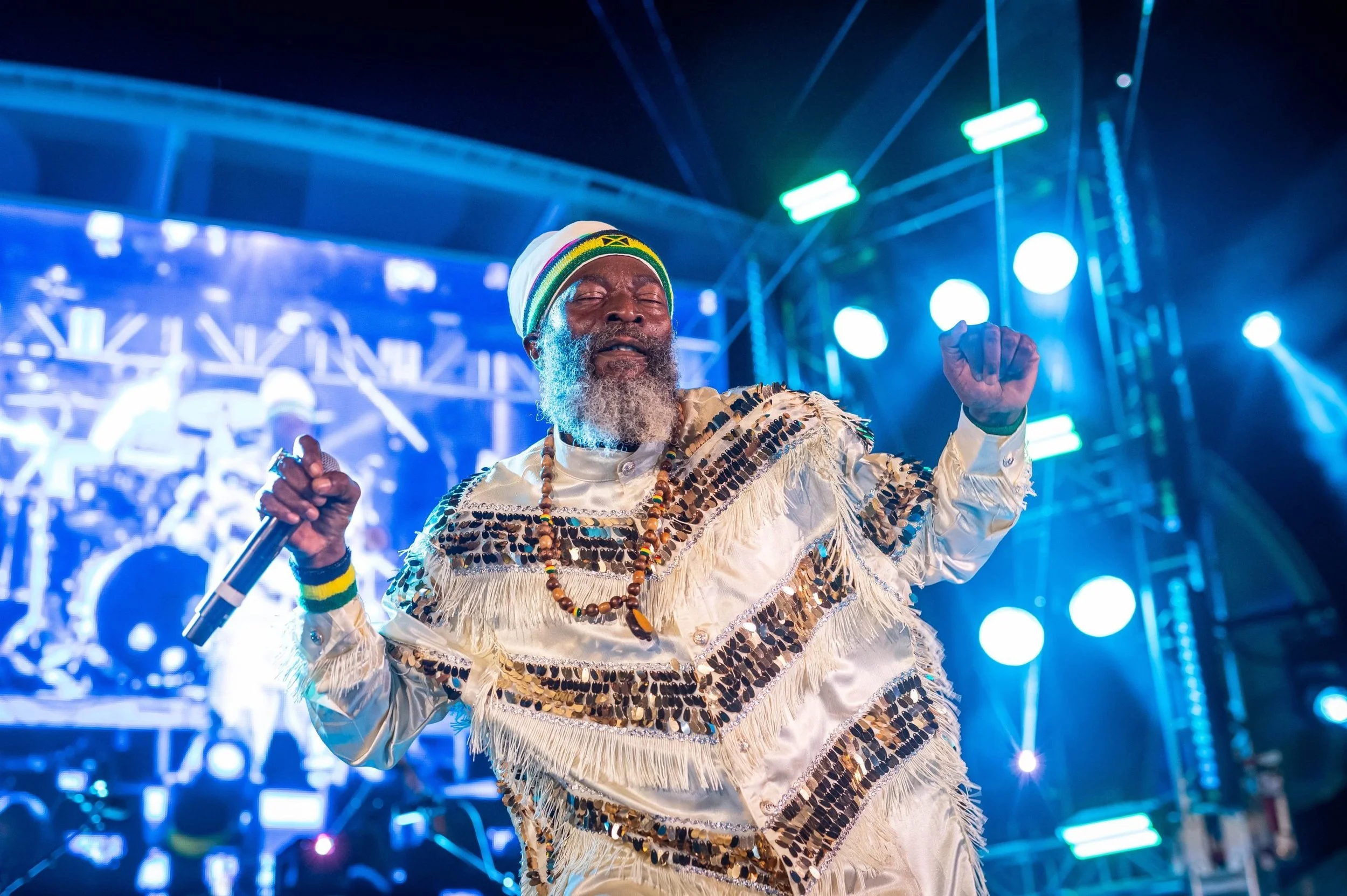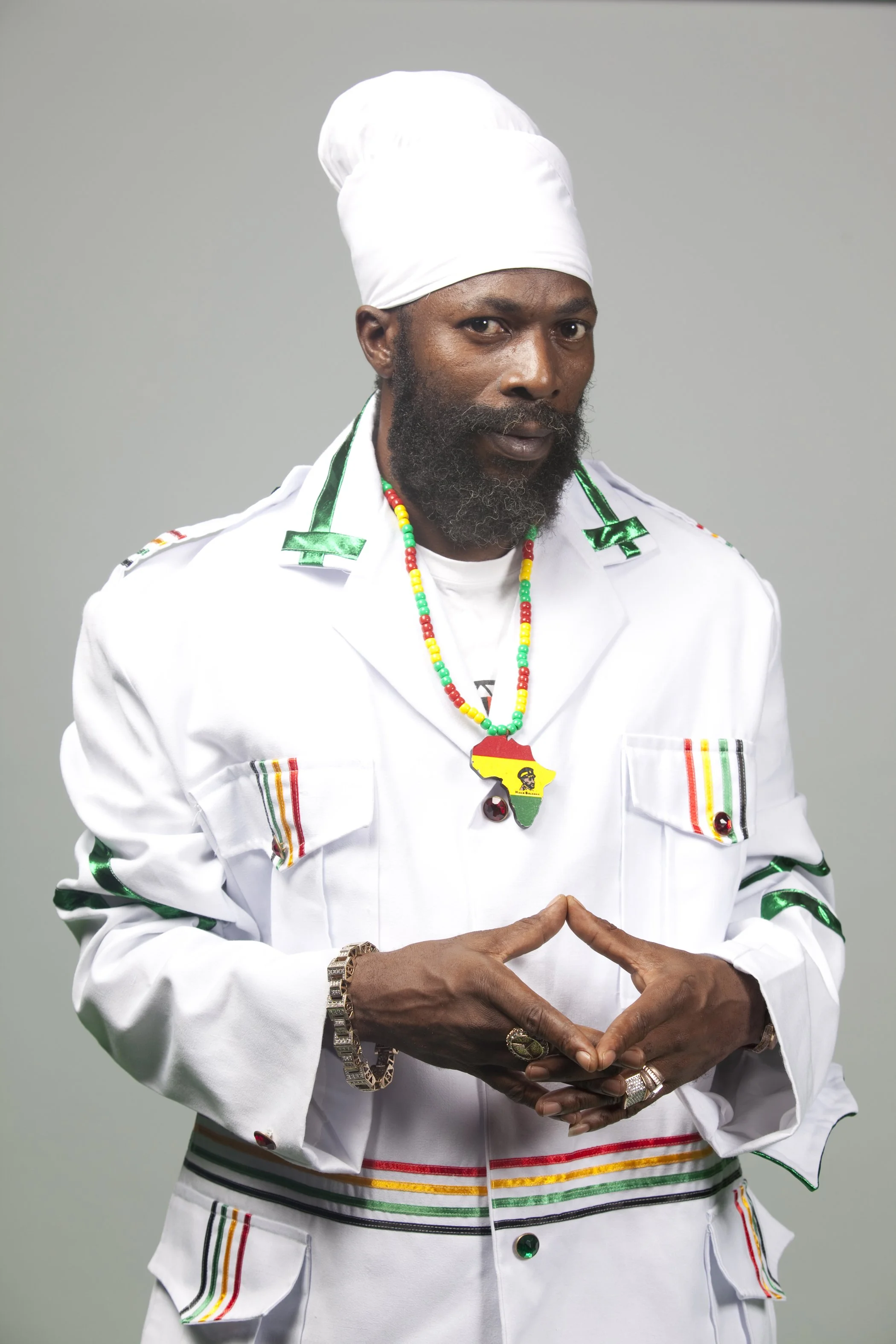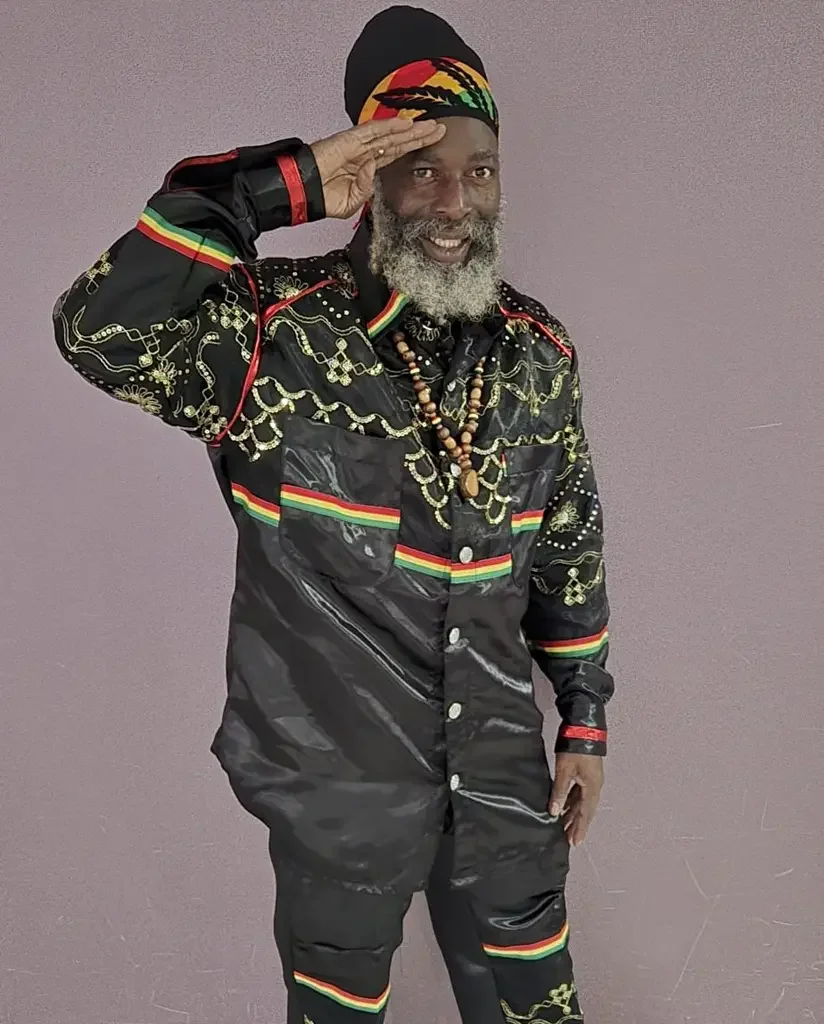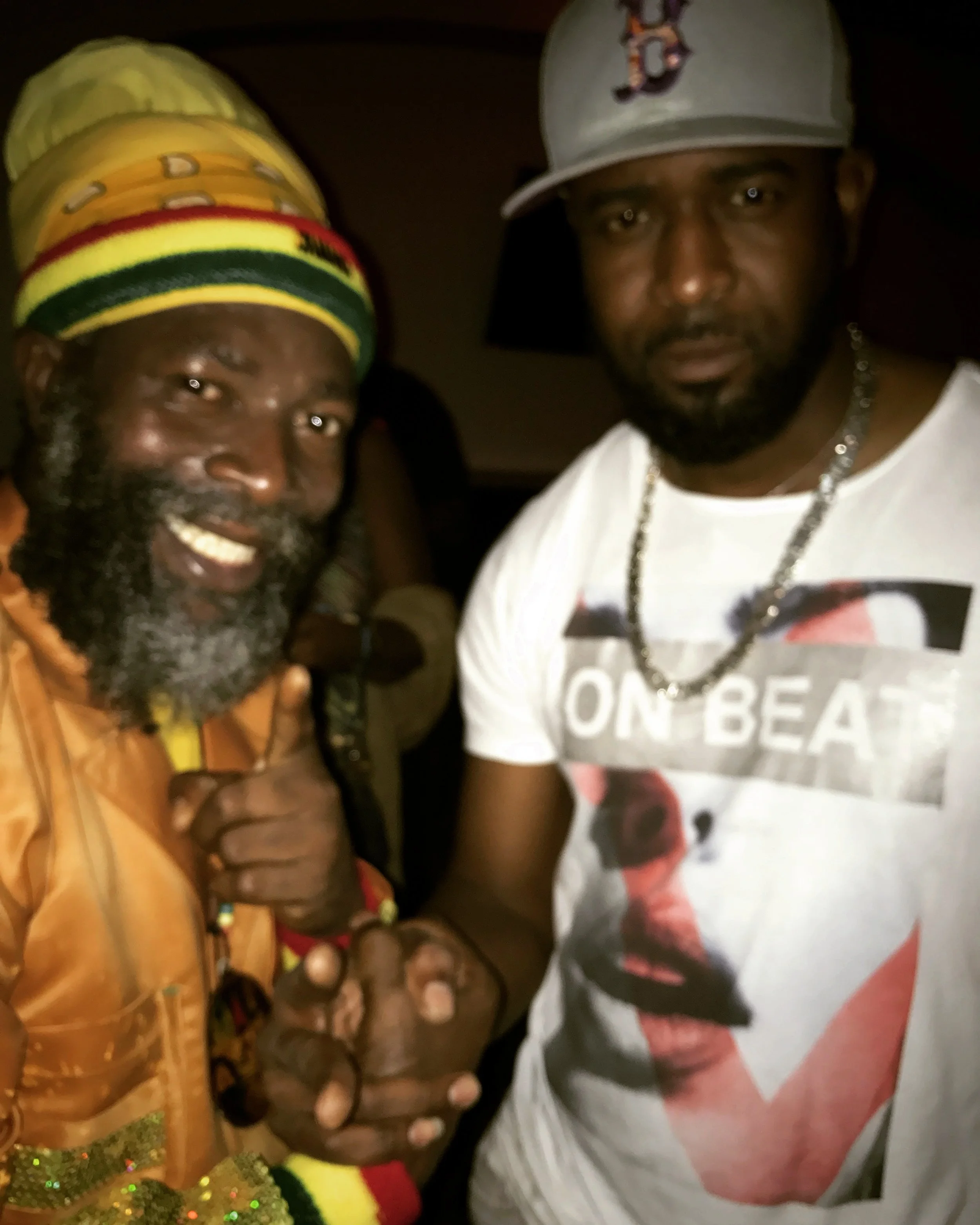
Capleton
Born Clifton George Bailey III on April 13, 1967 in Islington, St. Mary, Jamaica, Capleton developed his musical sensibilities early, sneaking out to local dancehall events and eventually relocating to Kingston at age 18 to pursue his career.
Artistic Evolution & Signature Style
Adopting stage names like King Shango, The Prophet, and The Fireman, Capleton emerged in the late 1980s and early 1990s as a distinct voice in the Jamaican music scene.
Capleton’s early career featured dancehall-style toasts and deejay rhythms. He scored early successes with tracks like “Bumbo Red” and “Number One Pon the Look Good Chart.”
However, as his spiritual path deepened (he embraced the Rastafari movement, notably the Bobo Ashanti mansion), his music shifted towards “conscious” lyrics, roots reggae rhythms and themes of upliftment, African identity and social justice.
Albums such as More Fire (2000), Still Blazin’ (2002) and Reign of Fire (2004) illustrate this transformation from dancehall deejay to roots-reggae messenger.
Musically, Capleton’s voice, gravelly, assertive, commanding; combined with energetic delivery and stage magnetism has become his hallmark. His live shows are often described as electrifying, driven by a mantra of “fire” that signifies purification and spiritual renewal rather than destruction.
Impact & Legacy
Capleton has sustained a career spanning over three decades, remaining relevant in the reggae/dancehall arena while influencing younger artists and bridging conscious roots and mainstream appeal.
His global reach is significant, from Jamaica to Europe to North America; and his message of uplift and resistance continues to resonate.
Message-driven lyrics: In an industry frequently dominated by party rhythms and slackness, Capleton stood out by infusing spiritual, social and cultural messages into his work.
Transformation and staying power: Rather than staying static, he evolved; embracing roots reggae, collaborating broadly and expanding his musical palette.
Stage presence: His performances radiate intensity and conviction, uniting crowds around his message of fire and purity.
Cultural authenticity: Capleton’s commitment to Rastafari life (including vegetarianism, clean living) and African consciousness adds depth to his public persona.
Strengths & Highlights
Criticisms & Controversies
No artist is without shortcomings or challenges. Capleton has faced criticism, particularly regarding certain lyrics perceived as anti-gay. For example, his earlier works containing lines about “fire” and “burning” were interpreted by some advocacy groups as homophobic; though his camp contests these interpretations as metaphorical and claims his intent is spiritual purification rather than literal violence.
Such controversies highlight the tension that sometimes exists between the cultural, religious and musical contexts in Jamaica and international expectations of social justice. These issues have affected his touring and reception in certain markets.
Why Capleton Matters
For any fan of reggae, roots or dancehall who seeks more than just catchy rhythms, Capleton offers something meaningful: a bridge between the dancefloor and the consciousness floor. His work underscores that reggae is not merely entertainment but can be a vehicle for reflection, spiritual awakening and cultural reclamation.
He demonstrates that longevity in music requires evolution — staying true to one’s self, message and community. In an era when many artists shift purely for commercial gain, Capleton’s commitment to authenticity stands out.
Capleton | Bigger Figure
In Summary
Capleton is a defining figure in contemporary reggae and dancehall. He stands at the intersection of fire-brand dancehall energy and roots reggae wisdom. Whether you’re drawn to his earlier deejay anthems or his later spiritually infused albums, there’s a through-line of passion, conviction and cultural anchoring.
If you’re curating a blog or feature on reggae artists who matter, Capleton deserves to be front and center. His story is one of transformation, commitment and a catalytic voice that still resonates in 2025 and beyond.
